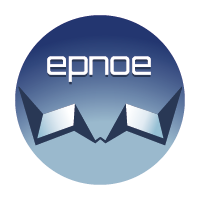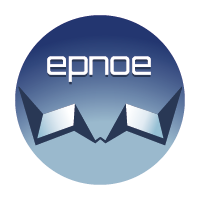Ongoing Projects
Polysaccharides projects in Europe
Project at University of Girona (Spain)
Accelerating the industrial deployment of nanocellulose production processes through the use of artificial intelligence algorithms (ArtInNano)
Funding Agency: Spanish Ministry of Science and Innovation
Start Date: 01.07.2023
End Date: 30.06.2025
The ArtInNano project arises from the need of accelerating the transition in production and characterization of nanocellulose, from laboratory to industrial scale. Currently, production processes of nanocellulose present a high uncertainty degree, making unfeasible the establishment of industrial productive centers with certain guaranty, as many of the involved mechanisms are still unknown and/or there are no monitoring systems available able to parameterize and control in real time, leading to excessive delays between sampling and the results.
ArtInNano is conceived to develop kinetic models of the most used pretreatments, as well as the seek of tangible parameters in real time with commercially available instrumentation.
Further, the fibrillation processes, in which it exists a change of scale (from micro to nano), require efficient monitoring systems and, in addition, properly correlated parameters with morphologic characteristics of nanocellulose. Not only this, but considering the myriad of raw materials, production processes and intensities, the development of algorithms based on artificial intelligence able to correlate the influence of raw material characteristics over production processes, and how the process conditions may affect the resulting characteristics of nanocellulose is a must.
In that sense, ArtInNano is divided into two work packages: the first one has as objective the determination of the involved mechanisms in TEMPO-mediated oxidation, determining the main kinetic parameters that affect the reaction, as well as its effects over the oxidized fiber characteristics.
On the other hand, to assess enzymatic hydrolysis processes, correlating the concentration of reducing sugars with easy-to-measure parameters of the processes and in real time. Finally, to assess the influence of both processes over the high-pressure homogenization process, as well as how are the morphological changes that fibers experience in their transition from micro to nano.
The second work package aims at transforming tacit to explicit knowledge, this is establishing correlations through artificial intelligence algorithms (artificial neural networks, random forests, linear regression) between raw material characteristics, processing conditions, and the final characteristics of cellulose nanofibers, being an innovative approach that only counts on few works in the literature.
Projects at Łukasiewicz Research Network- Łódź Institute of Technology (Łukasiewicz- ŁIT)
”Oh my, what about these wounds, i.e. what dressing to choose and how they differ?”
Funding Agency: Project co-financed from the state budget
Start Date: 01.09.2022
End Date: 31.08.2024
Choosing the right dressing material for both specialists and patients is a very big challenge. There are currently about 6,000 different types of wound dressing materials on the market. The multitude of products with very different properties, obtained by various technologies, causes difficulties in distinguishing between individual products, finding differences and finally in making the right choice.
Meanwhile, wound dressings play a key role in the wound healing process. The work will analyze dressings from all key groups and types of dressing materials. Characterization of the key parameters of the dressings will be made, which will allow the collection of numerical data of individual parameters.
In this way, it will be useful for both professionals and as well as a legible and clear guide for patients, which will introduce the highly developed and complicated market of dressing materials. Such a study will allow the patient and the professional to make an informed choice.
”Let’s stop allergies – an innovative solution to improve the quality of life”
Funding Agency: Project co-financed from the state budget
Start Date: 01.09.2022
End Date: 31.08.2024
The aim of the project is to develop innovative anti-allergic covers and their commercialization. The newly developed anti-allergic covers will be made of a multifunctional textile material characterized by high barrier efficiency in relation to house dust mite allergens, hygiene, comfort and durability of use. Duvets, pillows and mattresses are the main habitat of house dust mites, hence the use of a barrier in the form of anti-allergic covers is a basic element of allergy prevention.
The scope of work includes verification and functionalization of the designed prototype barrier fabric, development of the construction of covers for individual types of bed linen and comprehensive testing of the manufactured solution. Work will be carried out to obtain ECARF and STANDARD 100 by OEKO-TEX certificates.
The final result of the project will therefore be commercialized, innovative anti-allergic covers made available to the general public, with certificates confirming qualified barrier properties and human ecology, and thus the effectiveness of protection against household dust allergens.
”An ecological preparation based on natural polymers with a repellent effect on ticks”
Funding Agency: Project co-financed from the state budget
Start Date: 01.09.2022
End Date: 31.08.2024
The main goal of the project is to develop an environmentally friendly tick-repellent preparation based on properly selected natural polymers with the addition of essential oils, used in the form of spraying on green areas and to evaluate its mechanical, physico-chemical and rheological parameters as well as centrifugal and thermal stability.
Conducting biological and behavioral tests of the developed preparations on ticks in a research and development unit and tightening cooperation between this unit and entities operating in the socio-economic sphere interested in development and protection of the natural environment.
The implementation of this objective will contribute to the socio-economic development of Poland by improving the conditions conducive to the process of development and diffusion of innovative projects aimed at ensuring safety against tick-borne diseases.
Project at Abo University
3D bioprinting has emerged as a powerful technology that can produce 3D biomedical structures, artificial tissues and organs imitating critical characteristics of a natural tissue or organ. Such printed 3D scaffolds find a broad spectrum of applications such as high-throughput drug screening, tissue engineering, regenerative medicine, organ transplantation, medical dressing for wound care as well as in vitro cell culturing studies for biomedical research.
Our proposed Research to Business project 3D CelluGel aims to evaluate different business models in order to identify the best commercialization and business strategy for making our bioinks into an international success. We will strive to make our innovation as globally recognized 3D bioprinting material products.
Project at JENA University
Project at BOKU
Project at SEPPIC
EnXylaScope – Mining Microbes and Developing Advanced Production Platforms for Novel Enzymes To Rapidly Unleash Xylans’ Potential In a Scope Of Products For the Consumer Market
Grant number: 101000831
Funding agency: REA
Start date: May 1st, 2021
End date: April 30th, 2025
Xylan is an important structural component of plant cells. The EU-funded EnXylaScope project will find and optimise novel enzymes for producing a debranched (water-insoluble) form of xylan with properties that make it a suitable ingredient for consumer products. In total, three types of enzymatically modified xylan will be made and tested for application in six consumer products that span three sectors: cosmetics, personal care and nutraceuticals. Researchers will use advanced techniques for the discovery, production and formulation of these enzymes. EnXylaScope is designed to maximise research output and reduce the time frame required to launch these products onto the marketplace. www.enxylascope.e
Projects at University of Nottingham
Sustainable Future Foods: Mechano-Enzymatic Assembly of Complex Food Structures
Grant number: BB/T008369/1 – 2604202
Funding agency: BBSRC
Start date: October 1st, 2021
End date: September 30th, 2025
Soft Matter Biomaterials and Biointerfaces Team in collaboration with Diamond Light Source, Sir Peter Mansfield Imaging Centre and Motif FoodWorks, a Massachusetts-based animal-free ingredient innovation company, are looking forward to train an early stage researcher to PhD level as part of a highly prestigious BBSRC DTP CASE PhD Studentship Programme. Designing sustainable foods requires novel plant-based ingredients that enable creating new textures, whilst unlocking product’s functionality in the body. This calls for discovery and development of new fibre materials with highly ordered structures that mimic some of nature’s most wondrous fibres such as silk, collagen and myofibrils.
This project seeks to discover and develop new methods for controlling enzymatic cross-linking during extensional flow and characterise ordered structures using small angle scattering and nuclear magnetic resonance imaging, as well as diving into understanding fibre’s mechanical and functional properties, focusing on applications in foods. The successful candidate will: 1) Research cross-linking reaction between proteins and polysaccharides (dietary fibre) and evaluate the impact of crosslinking on the rheological (flow) and mechanical properties of fibre. 2) Develop a new extensional flow sample environment system at the I22 Small Angle Scattering and Diffraction Beamline, Diamond Light Source, thus enabling measurements of biopolymer structuring during fluid elongation and formation of a fibre filament. 3) Characterise polymer and water dynamics using NMR spin relaxation and multi-scale imaging techniques at the Sir Peter Mansfield Imaging Centre. 4) During a research experience placement at the lab facilities of Motif FoodWorks (Boston, MA, USA), research on enzyme functionality and synthetic biology-based approaches for identifying new targets for strain engineering and designing enzymes with targeted activity and specificity will be undertaken. The primary host of this Studentship is the Soft Matter Biomaterials and Biointerfaces (SMBB) Team at the University of Nottingham, School of Biosciences. SMBB is a highly dynamic, interdisciplinary team focusing on biomolecular composites, which underpin development of sustainable and healthy foods.
The successful candidate will be encouraged to participate in the activities of the British Society of Rheology, Institute of Physics Food Physics Group and European Polysaccharide Network of Excellence (EPNOE). Previous experience in (bio)polymers, soft matter systems or colloids is highly appropriate. Experience of bimolecular characterisation and some level of COMSOL/MATLAB/Python skills are highly beneficial. The successful candidate will have a positive approach to collaborative research and the drive to make a significant contribution to innovation and sustainable food systems.
Australia Partnering Award: Delving down-under using advanced plant phenotyping to uncover how roots grown in hard soils
Grant number: BB/V018124/1
Funding agency: BBSRC
Start date: August 1st, 2021
End date: July 31st, 2025
The overarching aim of this project is to share UK-Australian expertise in plant phenotyping with the goal to improve compaction tolerance and global food security (supporting Bioscience for Sustainable Agriculture and Food from the BBSRC Delivery Plan and the BBSRC Agriculture and Food Security Strategic Priority Area and the priority areas of Food, Soil and Water of the Australia Research Council.
Visualisation and motion analysis of in mouth processes and oral behaviours associated with wearing dentures
Grant number: BB/V509553/1 – 2453626
Funding agency: BBSRC
Start date: October 1st, 2020
End date: September 30th, 2024
This Project focusses on combining new advances in motion capture, computer-based analysis (including the use of novel deep learning algorithms) and Oral Processing analysis, to provide fundamental and genuinely new underpinning insights into facial motions during use of dental devices, denture adhesives and dental patches.
Projects at University of Girona
Project at IMT Mines Alès, France
Projects at University of Jena, Germany
University of Jena, Germany – Collaborative research Center 1278 – Multifunctional nanoparticles based on polysaccharides for targeted drug delivery with two-step release behavior
Project at VTT
Technical Research Centre of Finland Ltd, Solutions for Natural Resources and Environment
INN-PRESSME
Developing new market-ready products and goods, from bio-based materials, by feedstock conversion. Nano-enabling will make these materials reach and exceed performances of current fossil-based materials. All materials at TRL7 will be environment-friendly according to circular economy principles.
Support the digital transition by providing companies with all data and life cycle value chain modelling tools, compatible with an industrial production move to TRL9, from feedstock conversion to material processing. This is key in maximising the use of feedstock materials in the circular economy.
More info click here

